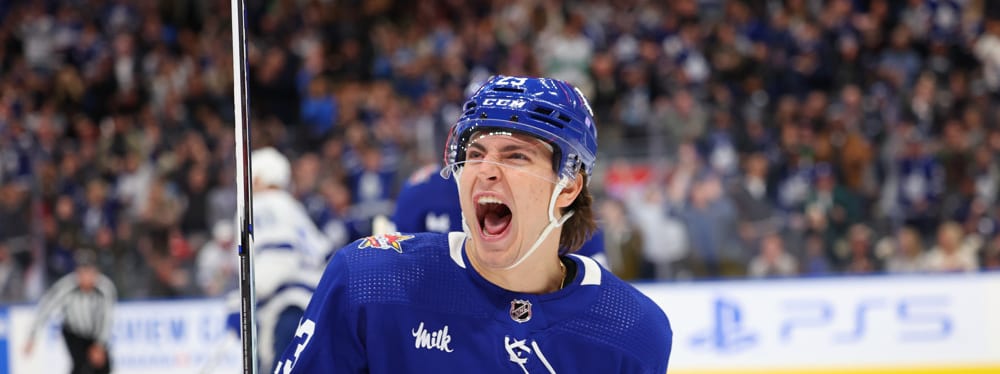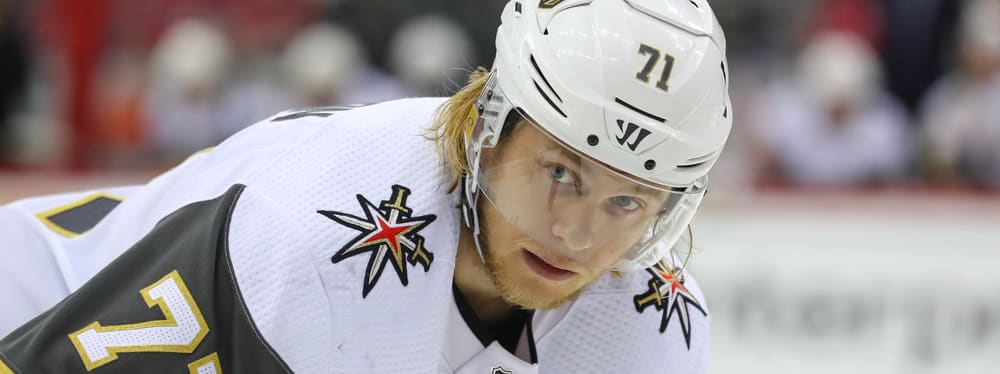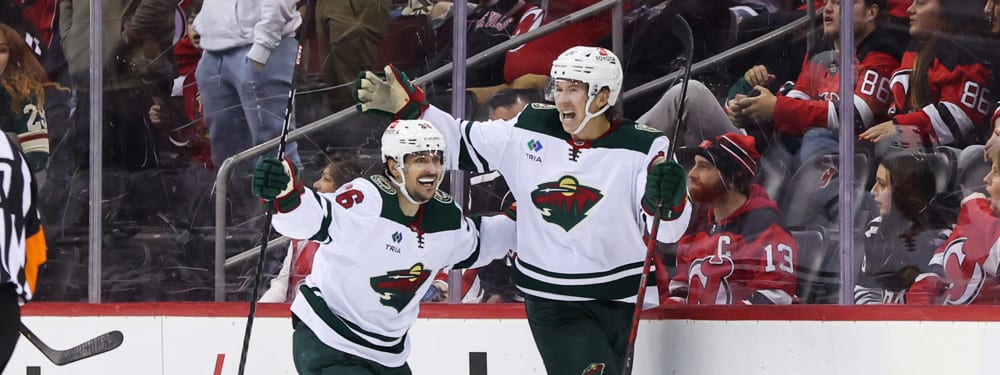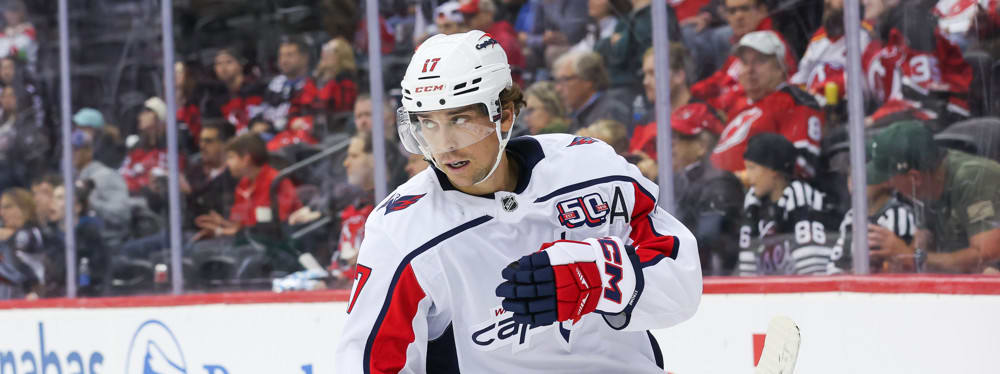Recent RotoWire Articles Featuring Justin Faulk
See More
Perhaps the most well-rounded blueliner in St. Louis, Faulk put together a career year with 50 points in 82 contests in 2022-23. He added 112 hits, 140 blocked shots, 196 shots on goal and a minus-4 rating while earning 10 of his points on the power play. Aside from the poor plus-minus, Faulk was as much as a fantasy manager could ask for in the other categories. He may dip back into the 40-45 point range for 2023-24, but he should be assured of a top-four role with some power-play time entering his fifth year with the Blues. The overall production is enough to justify taking the 31-year-old as a No. 2 defenseman in fantasy, particularly if your first blueliner isn't from the elite tier.
Anyone lucky enough to nab Faulk late in their draft or snag him off the waiver wire early in the year was handsomely rewarded. Faulk's days as a reliable fantasy option appeared over following a two-year stretch in which he managed just 12 goals and 41 points in 125 games, but he blew past those numbers this past year alone, finishing with 16 goals and 47 points in 76 contest. All this despite the fact his ice time dropped by 1:04 per game compared to the 2020-21 campaign. Faulk is a clear regression candidate in terms of scoring, as his power-play time figures to dip if Torey Krug can remain in the lineup this coming season, but 35 points and 100-plus hits and blocks each should be within reach in Faulk's age-30 season, giving the defenseman decent fantasy value in virtually all formats.
Faulk's second season as a Blue went better than the first, as he recorded 25 points, 127 hits, 87 blocked shots and a plus-11 rating in 56 contests. The 29-year-old skated 24:16 per game, his highest ice time average since 2014-15. The Minnesota native will likely see a second-pairing role this season, as well as the potential for second-unit power-play time. Faulk reached 30 points in six seasons before the NHL's last two shortened campaigns, so that seems to be a fairly safe baseline for his production. He'll also be a beast in the physical categories, which gives him a wider variety of ways to make good for fantasy managers who take him with a late-round pick.
Coming off six straight seasons with 30 or more points, Faulk disappointed in 2019-20 with just 16 points through 69 games. The 28-year-old finished with his lowest shot total (147) and hit total (82) since the 2012-13 lockout season as well. A main contributing factor to Faulk's offensive slump was that he was often left off the power play, a trend that could certainly continue as long as Torey Krug, Colton Parayko and Vince Dunn are on the roster. Faulk could make a leap in his second year in St. Louis. He's just two seasons removed from posting 19 points on the power play. Until it's clear that things have changed, Faulk isn't a trustworthy fantasy option.
Faulk's 49-point campaign from 2014-15 looks like an aberration, but he's still a useful source of offense from the blue line. The 27-year-old defenseman has scored between 31 and 37 points in each of the four subsequent campaigns, adding over 200 shots on goal in each of the last three seasons. Carolina's improved roster also finally helped mask Faulk's defensive shortcomings, as he finished with a career-best plus-9 rating in 2018-19 after combining for a minus-85 mark over the previous four years. If Faulk can maintain the improved rating, there's little not to like about him later in drafts.
Faulk was a major disappointment last season as he finished with just 31 points and a career-worst minus-26 rating. Once considered a leader on the team (and co-captain last season along with Jordan Staal), Faulk has shown flashes of brilliance in the past (49 points in 2014-15), but he's seen his value plummet in recent years along with his scoring ability. Following the Canes' major acquisition of Dougie Hamilton from Calgary in June, the team is set to enter the 2018-19 season with a top-three blue-line corps of Hamilton, Jaccob Slavin and Brett Pesce, thus rendering Faulk largely expendable, and excellent trade bait in its search for a proven No. 1 goaltender. Thus, don't be surprised if he's playing for a different team come October. Production-wise, the 26-year-old Faulk is still considered to be in his prime, so a return to the 40-point range is not out of the question.
Faulk failed to live up to expectations yet again in 2016-17, posting an underwhelming 37 points for the second consecutive season. Furthermore, from a plus-minus perspective, his minus-18 last year ranked him second worst among Hurricanes defensemen, and marked the third straight time he landed in negative double-digit territory. Overall, there was a time when Faulk was considered one of the NHL’s most promising young blueliners following his 49-point season in 2014-15 (12th among NHL defensemen), but he has regressed badly over the past two seasons and no longer carries this distinction. The good news is that after missing 18 games with an assortment of injuries two seasons ago, Faulk played in 75 of 82 last year, making his durability less of a concern heading into the 2017-18 campaign. At just 24 years old, Faulk still has an impressive offensive skill set, meaning a rebound season is certainly not out of the question. However, with a mediocre supporting cast in Raleigh, the chances of returning to elite form are not encouraging. He remains very much a high-risk, high-reward player from a fantasy perspective.
Faulk had a terrific start to the 2015-16 season with 30 points in his first 36 games leading up to Dec. 27, but faded badly after that. He had just four points in his next 18 games before suffering an ankle injury in early February, missing the better part of six weeks, and returning for the Hurricanes' last nine regular season games. Faulk remains one of the game's better offensive defensemen, however, he continues to be hampered by a weak supporting cast, and also needs to show he can maintain a strong level of consistency for a full season. He should definitely be on your draft list next year, but don't overpay to get him
After emerging on the fringe of the fantasy radar with a 32-point campaign in 2013-14, Faulk took a quantum leap forward this past season. The 23-year-old announced himself as a dangerous offensive defenseman, potting 15 goals and supplying 49 points in 82 games. The puck-moving blueliner finished third among all NHL defensemen with seven power-play goals, helping the Hurricanes’ man advantage unit operate at an impressive 18.8 percent success rate. He also finished fourth among all NHL rearguards with a whopping 238 shots on goal and contributed a clutch four game-winning tallies. Faulk’s willingness to jump into the play and his tremendous offensive instincts could make him a top-10 fantasy blueliner entering the 2015-16 season, if he's not already being universally viewed as such. The youngster epitomizes everything you could want in an under-25 defenseman, and with talented newcomer James Wisniewski potentially set to become Faulk’s new power-play partner, there's no reason the 2010 second-round draft pick can’t make a run at the 50-point mark this season.
Last season, Faulk set career-highs in points (32), games played (76), shots on goal (152) and blocked shots (102), while proving to be one of the Hurricanes’ better blue line options, playing on the top defensive pairing alongside Andrej Sekera. In return, the team inked Faulk to a six-year, $29 million contract extension in March, which should keep him in Raleigh long term. From a fantasy standpoint, perhaps the biggest knock against Faulk is his supporting cast, as the ‘Canes are one of the weaker teams in the league offensively (2.50 goals per game in 2013-14; 22nd in the league), giving him few high-scoring teammates to dish the puck to every night. However, at just 21 years old, Faulk has not yet hit his prime and figures to keep getting better.
Faulk is a talented offensive defenseman with upside. He had 15 points in 38 games last season. He is just 19 but the potential is there for him to become a solid value buy for alert fantasy owners. But, your window for a steal maybe fast closing as Faulk is a strong candidate to make the U.S. roster for the upcoming 2014 Olympics in Sochi.
If you find yourself looking for a promising, young defenseman, be certain to target Faulk, who finished second among rookie defensemen in points with 22. Faulk saw substantial power-play time in his 66 games and led the Hurricanes in average time on ice; 12 of his 22 points came on the power play. A hapless defensive club, Carolina looked to get their 2010 second-round selection involved with the big club early and often this past season, and will likely give him a similarly high number of opportunities to develop in 2012-2013. Faulk is of more value in keeper leagues and has much upside in deep single-season seasons as well.
Evidently in need of blueliners for the future, the Hurricanes selected five defensemen between seven rounds of the 2010 NHL Entry Draft, with the American-born Faulk hearing his name called in the second round (No. 37 overall). As a freshman for the University of Minnesota-Duluth in 2010-11, Faulk registered 33 points (8 G, 25 A) and 47 penalty minutes in 39 games before winning a national title with his collegiate club in 2011. The high-scoring rearguard also was able to get a head start on his pro career by appearing in three rounds of the 2011 Calder Cup playoffs with the Charlotte Checkers, the Hurricanes’ minor league affiliate. It’s reasonable to expect more seasoning out of Faulk before he heads to the NHL, but his signing a three-year contract with the Hurricanes last April tells us that Carolina is serious about the young prospect. He’ll be one to consider for keeper leagues in the near future.
The Hurricanes went after Faulk with the 37th pick of the 2010 Entry Draft. At an even 6-foot, Faulk is on the shorter side for a defenseman, but he compensates by handling the puck well and having a rifle for a shot. Faulk is just another hint that Carolina wants to pump more offense into their blue line for the future.








